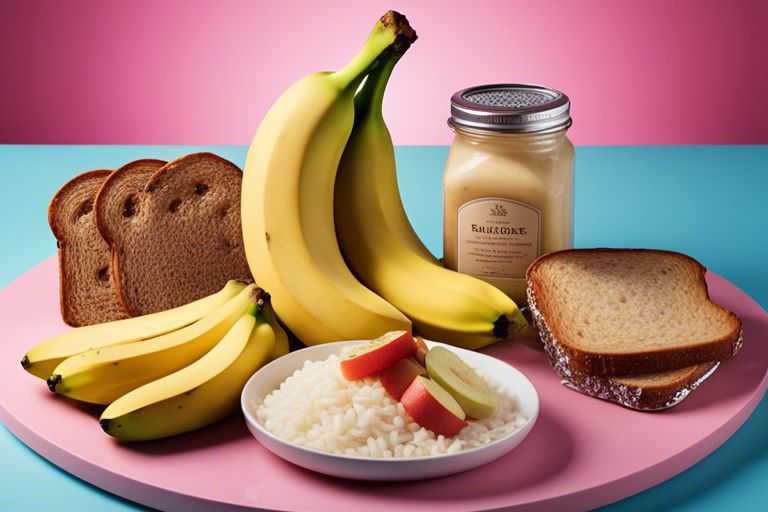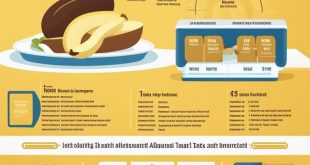It’s time to take a closer look at the BRAT diet commonly recommended for gastrointestinal issues like diarrhea. While the bananas, rice, applesauce, and toast regimen has been a go-to remedy for decades, recent research suggests that it may not be as effective as once thought. In fact, relying solely on BRAT could be dangerous for individuals, especially children, as it lacks imperative nutrients needed for recovery. Let’s explore why sticking strictly to BRAT may be outdated and discover better alternatives for managing gastrointestinal distress.

Table of Contents
Historical Context of the BRAT Diet
Original Intended Use for BRAT
Any discussion about the BRAT diet must begin with its original intended use. Developed in the early 1920s, the BRAT diet was specifically designed to help individuals with gastrointestinal distress, such as diarrhea or upset stomach, to recover quickly. The four components of the diet – bananas, rice, applesauce, and toast – were chosen for their blandness and ability to bind stools, thus reducing the frequency of bowel movements.
Popularity and Adoption in Medical Advice
With the rise of the internet and social media, the BRAT diet gained widespread popularity as a go-to remedy for digestive issues. Many medical professionals began recommending the BRAT diet to patients experiencing diarrhea or nausea, believing it to be a gentle way to ease symptoms. However, in recent years, this approach has come under scrutiny.
Medical experts have started to reconsider the effectiveness of the BRAT diet due to its lack of vital nutrients and limited variety of foods. While the diet may help to temporarily alleviate symptoms, it is not a comprehensive solution for gastrointestinal issues and may even delay the healing process by restricting the intake of necessary nutrients.
Criticisms of the BRAT Diet
Even though the BRAT (bananas, rice, applesauce, and toast) diet has been a longstanding recommendation for managing digestive issues, it has faced criticisms in recent years due to its potential drawbacks and limitations.
Nutritional Shortcomings
BRAT diet is often criticized for its lack of nutritional diversity and imperative nutrients. While the foods included in the diet are easy on the stomach and may help alleviate symptoms like diarrhea, they lack imperative vitamins, minerals, and proteins necessary for overall health and recovery.
Lack of Scientific Support
Scientific research supporting the exclusive use of the BRAT diet for gastrointestinal issues is limited. While the bland nature of the foods may be soothing for an upset stomach, there is a lack of conclusive evidence demonstrating its effectiveness in promoting faster recovery or providing adequate nutrition during illness.
Nutritional guidelines emphasize the importance of a well-rounded diet to support the body’s healing process and maintain overall health. Relying solely on the limited food options in the BRAT diet may prolong recovery time and increase the risk of nutritional deficiencies, especially in vulnerable populations such as children and the elderly.
Modern Dietary Recommendations for Gastrointestinal Issues
Comprehensive Approaches to Digestive Health
One key aspect of modern dietary recommendations for gastrointestinal issues involves taking a comprehensive approach to digestive health. This includes focusing on not just what you eat, but also how you eat, when you eat, and the overall balance of nutrients in your diet. By addressing these various factors, individuals can better support their digestive system and overall gut health.
Alternative Foods and Hydration Strategies
Gastrointestinal issues can often be alleviated by incorporating alternative foods and hydration strategies into your diet. Opting for easy-to-digest foods such as bananas, applesauce, rice, and toast can help calm an upset stomach. Additionally, staying well-hydrated is crucial for proper digestion, so opting for clear liquids like water, herbal teas, and broths can be beneficial for gastrointestinal health.
Comprehensive approaches to digestive health involve looking at the bigger picture of one’s diet and lifestyle choices to support overall gut function. By incorporating probiotic-rich foods, fiber, and avoiding trigger foods, individuals can promote a healthy gut environment. Additionally, staying adequately hydrated and practicing mindful eating can further contribute to improved digestive health.
Implications for Health Practitioners and Patients
Educating on Updated Dietary Guidance
Now, with the evolving understanding of nutrition and gastrointestinal health, health practitioners must update their knowledge and educate patients on modern dietary recommendations. The traditional BRAT diet may no longer be the most effective approach for managing gastrointestinal issues.
Responsibilities in Diet Prescription
An crucial responsibility for health practitioners is to prescribe diets based on the latest evidence-based guidelines. This includes moving away from outdated practices like the BRAT diet and recommending more balanced and nutrient-dense options for patients.
The shift towards updated dietary guidance not only benefits patients by providing more comprehensive nutrition but also prevents potential complications associated with restrictive diets. Encouraging a diverse range of fruits, vegetables, lean proteins, and whole grains can promote better gastrointestinal health and overall well-being in patients.

Conclusion
Drawing together all the evidence and expert opinions on the matter, it is clear that the BRAT diet may be outdated when it comes to treating gastrointestinal issues. While it was once recommended for its bland and binding properties, research now suggests that a more varied and nutrient-dense diet may be more beneficial in aiding a quicker recovery. As always, it is important to consult with a healthcare professional before making any drastic changes to your diet, especially when dealing with digestive issues. It may be time to reconsider the BRAT diet and explore more modern approaches to managing gastrointestinal discomfort.
FAQ
Q: What is the BRAT diet?
A: The BRAT diet stands for Bananas, Rice, Applesauce, and Toast. It is a bland diet often recommended for individuals with gastroenteritis or other digestive issues to help reduce symptoms like diarrhea and nausea.
Q: Why is the BRAT diet considered outdated?
A: The BRAT diet is now considered outdated because it lacks important nutrients needed for recovery and may prolong the duration of illness. It is low in protein, fat, and fiber, which are important for overall health and healing.
Q: What alternatives are recommended instead of the BRAT diet?
A: Instead of the BRAT diet, healthcare professionals now recommend a more balanced diet that includes a variety of foods to provide necessary nutrients. Foods like lean proteins, fruits, vegetables, whole grains, and probiotics can help support digestion and promote faster recovery.
 hqsportz Personal Website | Tell Information about Sport, Fashion And Health
hqsportz Personal Website | Tell Information about Sport, Fashion And Health


